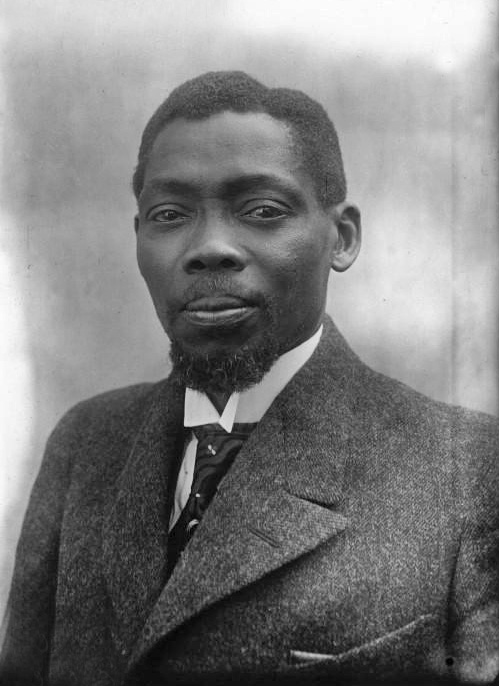 |
| Blaise Diagne |
Gaiaye M'Baye Diagne was born on the island of Gorée, the old slave trade base, in 1872. His energy and intelligence attracted the attention of wealthy mulattoes (people of mixed race), who sponsored his education at a religious school, where he was baptized as Blaise.
Diagne was educated in Senegal and France and entered the French colonial administrative service in 1891. He served in a number of administrative posts in parts of the French West African empire. In 1909 he married a Frenchwoman.
A proponent of assimilation and African rights as equal participants in French political and cultural life, Diagne became the first black African member of the French parliament in 1914. He became the first African member of the French government when he was appointed commissioner of the republic in West Africa in 1918; in the 1930s he became undersecretary of state for the colonies.
  |
During World War I he was particularly active in recruiting Africans to serve in the French army. Large numbers of Africans from throughout the huge French West African empire served with distinction during the war, but many were disappointed by their subsequent treatment as inferiors once the war was over.
Diagne's vision of assimilation was not realized, and many former African soldiers in the French army consequently became active supporters and leaders of the nationalist movements that struggled to secure independence from the French in the first half of the 20th century.